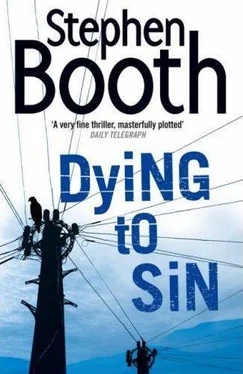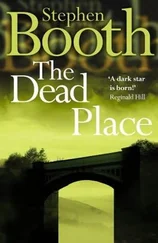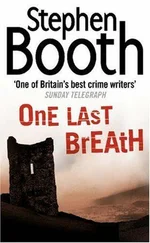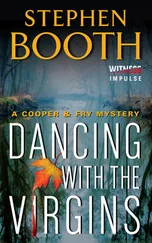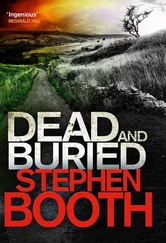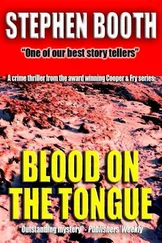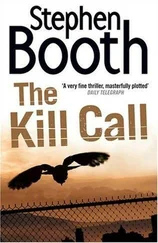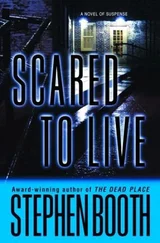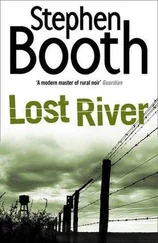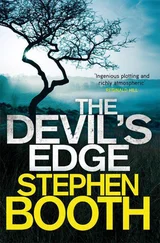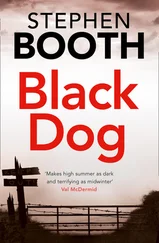Stephen Booth - Dying to Sin
Здесь есть возможность читать онлайн «Stephen Booth - Dying to Sin» — ознакомительный отрывок электронной книги совершенно бесплатно, а после прочтения отрывка купить полную версию. В некоторых случаях можно слушать аудио, скачать через торрент в формате fb2 и присутствует краткое содержание. Жанр: Полицейский детектив, на английском языке. Описание произведения, (предисловие) а так же отзывы посетителей доступны на портале библиотеки ЛибКат.
- Название:Dying to Sin
- Автор:
- Жанр:
- Год:неизвестен
- ISBN:нет данных
- Рейтинг книги:3 / 5. Голосов: 1
-
Избранное:Добавить в избранное
- Отзывы:
-
Ваша оценка:
- 60
- 1
- 2
- 3
- 4
- 5
Dying to Sin: краткое содержание, описание и аннотация
Предлагаем к чтению аннотацию, описание, краткое содержание или предисловие (зависит от того, что написал сам автор книги «Dying to Sin»). Если вы не нашли необходимую информацию о книге — напишите в комментариях, мы постараемся отыскать её.
Dying to Sin — читать онлайн ознакомительный отрывок
Ниже представлен текст книги, разбитый по страницам. Система сохранения места последней прочитанной страницы, позволяет с удобством читать онлайн бесплатно книгу «Dying to Sin», без необходимости каждый раз заново искать на чём Вы остановились. Поставьте закладку, и сможете в любой момент перейти на страницу, на которой закончили чтение.
Интервал:
Закладка:
‘No, no. There was no wall here. It was a job I gave to Jamie, you know — to keep him out of the way.’
‘Can I have a look at the plans, please?’
‘Sure.’
Dudzik pulled a rolled-up plan out of his back pocket and handed it to her.
‘It looks as though this area was going to be left pretty well untouched,’ she said. ‘It’s shown as grass on the drawings.’
Dudzik shrugged. ‘I know. But what a waste. This is the perfect place for a nice patio. Some good paving, you know. A water feature maybe. We could have made it nice.’
‘That’s pretty much what Jamie said too.’
‘That boy. He’s not stupid — just not practical, you know.’
‘He would have noticed soon enough that no wall was being built, wouldn’t he?’
‘I guess so, Detective.’
Fry had been listening to his accent. She knew he was Polish, but it was only the sound of his vowels that gave him away. His command of idiom was very good, and he hadn’t faltered on the use of tenses, which was often a problem for nonnative speakers.
‘Your English is excellent, Mr Dudzik. How long have you been in this country?’
The builder looked wary. ‘Eight years, Sergeant. I learned English back home, when I was a kid at school in Poland. When I came here, I talked English all the time with the people I met. Some of my fellow countrymen, when they come now, they don’t think they have to bother to learn English. It’s too much trouble for them. They think things will be translated into Polish for them, because they are so many. But I was one of the first to come, before my country was a member of the European Union, even. I always wanted to live in England, so I learned English. It’s the only way to fit in, yes?’
‘Yes, of course.’
He looked at her, still uncertain. ‘My papers are in order.’
‘I’m not doubting it,’ said Fry. ‘But you could do one important thing for me. Would you give my colleague, Detective Constable Murfin, a list of the men who have been working on your team here at the farm?’
Raymond Sutton stood to one side of the window and watched the police officers get into their car at the end of the drive. Quietly, he muttered a sentence to himself.
‘ And they answered and said unto him, Where, Lord? ’
As the car passed out of sight, he let the curtain drop. He turned back to face the room, looked around him for a moment, and finished the quotation.
‘ And he said unto them ,
Wheresoever the body is, there will the eagles be gathered .’
‘I’m sorry, Raymond? Did you say something?’
Sutton stared at Elaine, confused by her presence. He hadn’t noticed her come into the room. He’d been thinking that he was somewhere else, far away, in another life almost.
‘The Gospel of St Luke,’ he said. ‘Chapter seventeen, verse thirty-seven.’
‘I see, Raymond. Are you ready for your tea yet?’
‘King James version. Obviously.’
‘I’ll fetch it in, shall I?’
‘You can do what you like. It makes no difference now.’
5
A team from Sheffield University had been unloading equipment — shovels and trowels, wire-mesh screens for sifting bone fragments from the soil, evidence bags, tape measures and orange markers. One of the students was already using a video camera to record the position of the remains from every angle before the team approached it.
Fry knew that digging a dead body out of a grave was never as easy as burying a fresh one. When an unprotected corpse was placed in the ground, it formed an intimate union with the earth. Flesh rotted, fabric disintegrated, the skull, spine and pelvis became embedded in the soil. A casual digger would soon despair of freeing the entire body, even after it had spent a year or so in the ground. If anyone removed a body to bury it elsewhere, they were bound to leave a few bits behind.
‘We’re being allowed to approach for a few minutes’ consultation with the anthropologist,’ said DI Hitchens. ‘But then we have to keep clear. Dr Jamieson says he wants to protect himself from assumptions.’
‘Whose assumptions?’
‘Ours, I think.’
The forensic anthropologist’s task was the recovery of human remains, and the determination of age, sex, stature, ancestry, time since death, and any physical trauma that might indicate manner of death. Beyond that, he was not part of the investigation.
Fry laughed. ‘Are we allowed to speak to him at all?’
‘You could probably wish him a Merry Christmas.’
When he heard the laughter, the anthropologist looked up from the excavation with a suspicious scowl. He had a pale, bald head, almost the same colour as the paper scene suit he was wearing. Water gleamed on his scalp. From rain or sweat, it was impossible to tell.
‘How is it going, Doctor?’ called Hitchens.
‘Mixed fortunes, I’m afraid. A dry soil would have preserved the body better. But this is, well …’ He scooped a handful of mud that seeped through his fingers.
‘Too wet?’
‘Correct. Much too wet.’
‘But there’s some good news, I take it?’
‘Well, you know, there are plenty of opportunities on an isolated farm for disposing of a body. If your aim is to reduce the remains to something unidentifiable, then burial is actually one of the slowest and least successful ways to achieve that.’
‘It’s much quicker just to leave it exposed somewhere, if you can get away with it,’ suggested Cooper.
‘Yes. How do you know that?’
‘Every livestock farmer knows that a dead sheep left out in the open during the summer will be reduced to a skeleton within a month.’
‘Exactly. Burying a corpse just slows the process of decomposition. A deeply buried body can take eight times as long to decompose as one exposed on the surface. In this case, burial and the use of plastic sheeting are the two factors which might enable the victim to be identified.’
Protective clothing was being distributed to the forensics team — coveralls, hair caps, gloves and shoe protectors. Trace evidence was transferred so easily that it could be carried away from a crime scene just as easily as it was carried there.
Next to the grave an area had been provided for the scientists to work in, preventing any more disturbance of the grave itself than was necessary. Soil would be removed by lifting it in layers of about ten inches at a time, then it would be passed through sieves of various mesh sizes to extract evidence. They would be trying to locate fragments of bone, personal items, anything that had been dropped or didn’t belong in the area. Some of the anthropology students had begun cursing when they saw the condition of the soil they were supposed to sieve.
‘Yes, buried bodies can be said to be protected from the elements to a large extent. If the soil is acidic, the body will tend to decompose more rapidly. In temperate zones, or areas with severe winters, the processes of decomposition are slowed. Did you know that fat people skeletalize much faster? It’s because their flesh feeds huge armies of maggots. It’s not a weight-loss programme I’d recommend, but maggots can strip forty pounds of surplus flesh off an obese body in twenty-four hours.’
The remains would have to be exposed completely before they could be lifted from the grave. There was too much risk of losing body parts to the sucking grasp of the wet clay. The excavation team had come equipped with an array of small tools — dental picks, bamboo sticks, paint brushes and hand trowels. Fry could see that this was going to be a long, slow, painstaking job. And even after the remains had been removed, the excavation would continue. The anthropologist had called for a further ten inches of soil to be taken from below the body, in case small bones or other evidence had been left behind.
Читать дальшеИнтервал:
Закладка:
Похожие книги на «Dying to Sin»
Представляем Вашему вниманию похожие книги на «Dying to Sin» списком для выбора. Мы отобрали схожую по названию и смыслу литературу в надежде предоставить читателям больше вариантов отыскать новые, интересные, ещё непрочитанные произведения.
Обсуждение, отзывы о книге «Dying to Sin» и просто собственные мнения читателей. Оставьте ваши комментарии, напишите, что Вы думаете о произведении, его смысле или главных героях. Укажите что конкретно понравилось, а что нет, и почему Вы так считаете.
